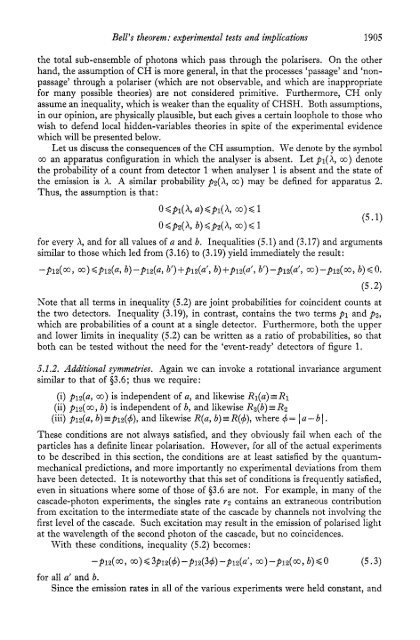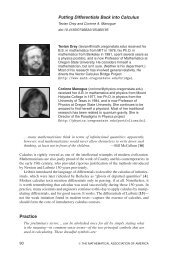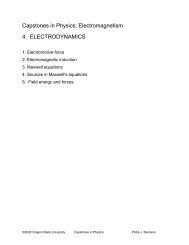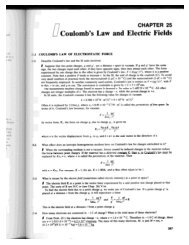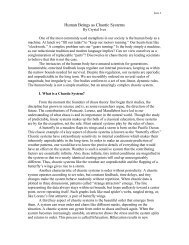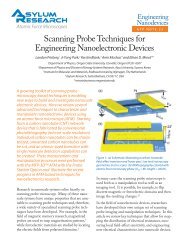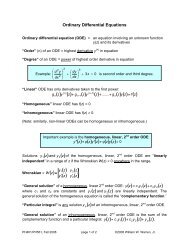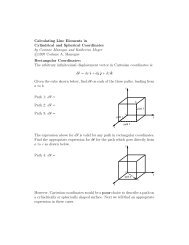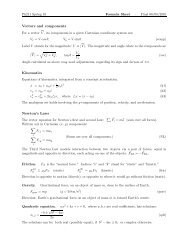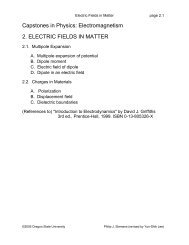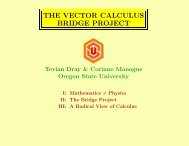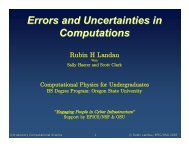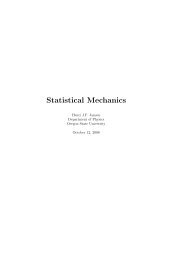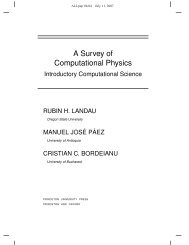Bell's theorem : experimental tests and implications - Physics at ...
Bell's theorem : experimental tests and implications - Physics at ...
Bell's theorem : experimental tests and implications - Physics at ...
You also want an ePaper? Increase the reach of your titles
YUMPU automatically turns print PDFs into web optimized ePapers that Google loves.
Bell’s <strong>theorem</strong> : <strong>experimental</strong> <strong>tests</strong> <strong>and</strong> <strong>implic<strong>at</strong>ions</strong> 1905the total sub-ensemble of photons which pass through the polarisers. On the otherh<strong>and</strong>, the assumption of CH is more general, in th<strong>at</strong> the processes ‘passage’ <strong>and</strong> ‘nonpassage’through a polariser (which are not observable, <strong>and</strong> which are inappropri<strong>at</strong>efor many possible theories) are not considered primitive. Furthermore, CH onlyassume an inequality, which is weaker than the equality of CHSH. Both assumptions,in our opinion, are physically plausible, but each gives a certain loophole to those whowish to defend local hidden-variables theories in spite of the <strong>experimental</strong> evidencewhich will be presented below.Let us discuss the consequences of the CH assumption. We denote by the symbol00 an appar<strong>at</strong>us configur<strong>at</strong>ion in which the analyser is absent. Let pl(A, 00) denotethe probability of a count from detector 1 when analyser 1 is absent <strong>and</strong> the st<strong>at</strong>e ofthe emission is A. A similar probability pz(A, 00) may be defined for appar<strong>at</strong>us 2.Thus, the assumption is th<strong>at</strong>:for every A, <strong>and</strong> for all values of a <strong>and</strong> b. Inequalities (5.1) <strong>and</strong> (3.17) <strong>and</strong> argumentssimilar to those which led from (3.16) to (3.19) yield immedi<strong>at</strong>ely the result:-p12(00, m)


